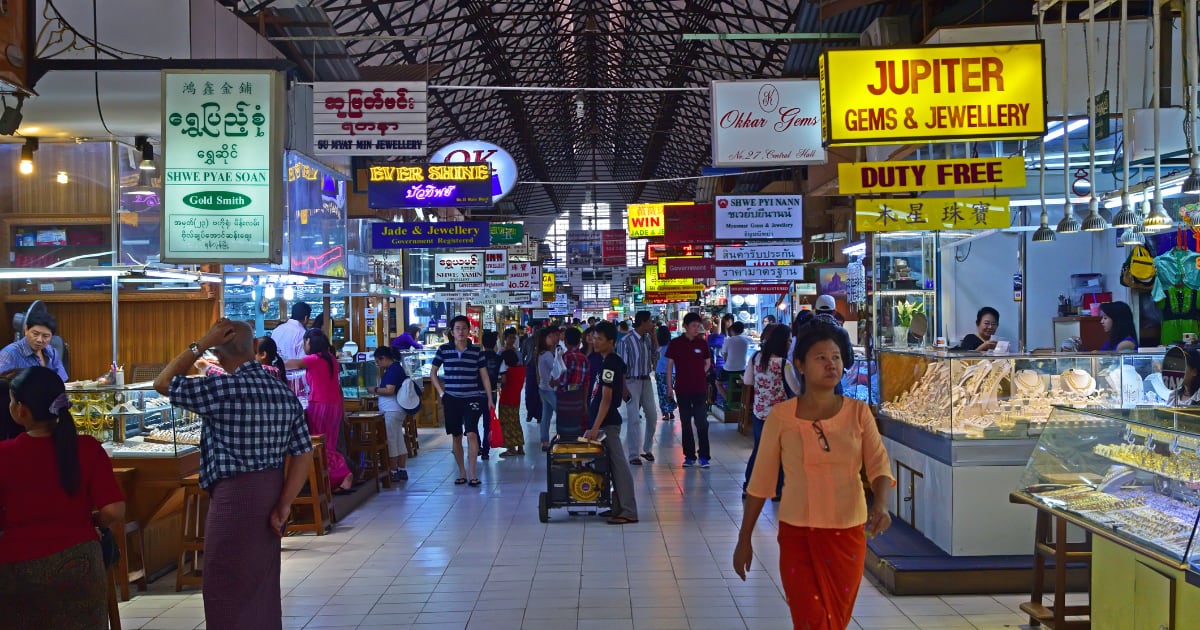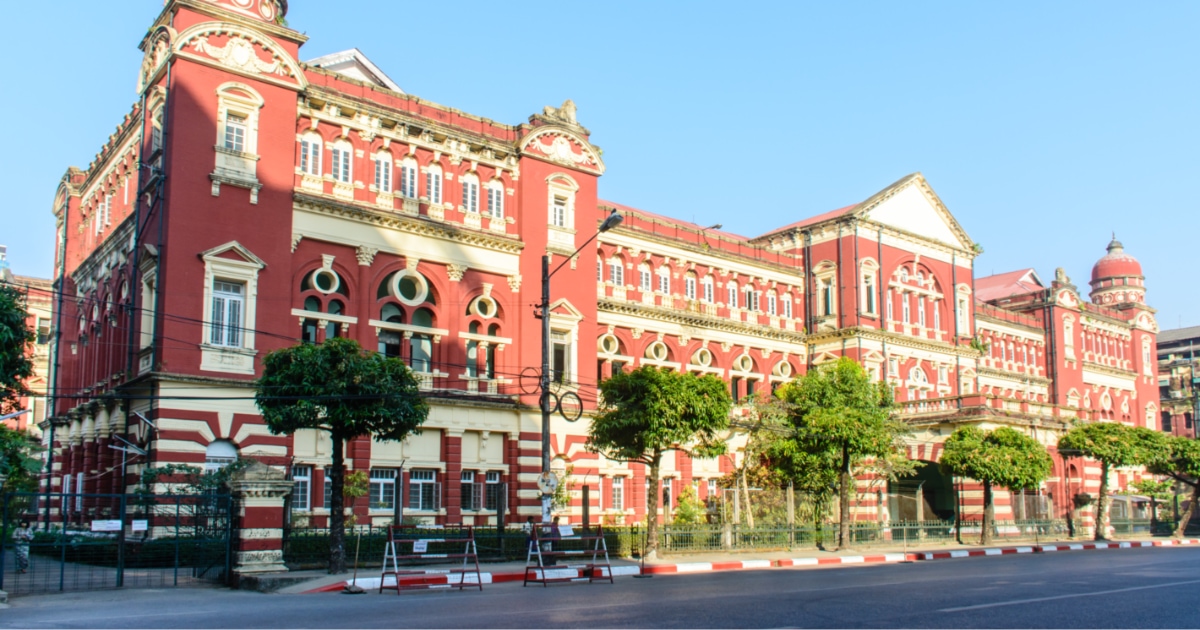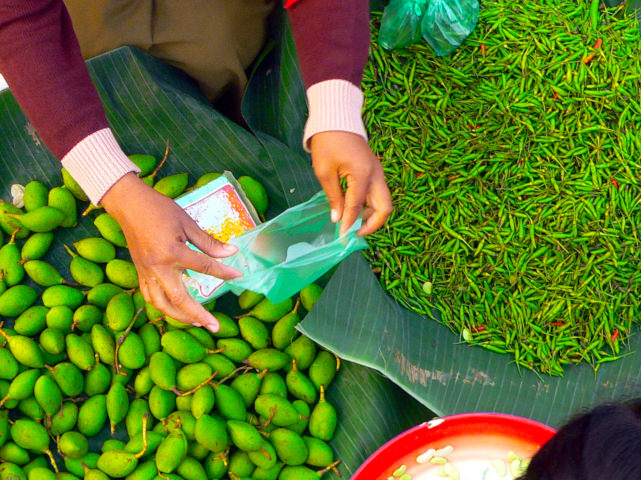Download PDF | Download word version
In July 2019, the Securities and Exchange Commission of Myanmar (SECM) announced that foreigners would be permitted to trade on the Yangon Stock Exchange (YSX) and a framework and schedule for implementing it were then published in September 2019.
On 6 March 2020, the SECM released an instruction that trading by resident and non-resident foreigners would commence on 20 March 2020 and allowed securities companies to receive applications from foreigners for account openings under the foreign exchange management regulations.
The development and performance of the YSX, including recent foreigner participation is outlined below.
-
YSX Development and Foreigner Participation
The YSX is the first modern stock exchange in Myanmar, opening on 9 December 2015. Stock trading launched on 25 March 2016, with a view to foster new opportunities and build confidence in the economic development of Myanmar.[1] To date there are only five companies listed on the YSX:
- First Myanmar Investment Public Co., Ltd. (FMI) (listed 25 March 2016);
- Myanmar Thilawa SEZ Holdings Public Co., Ltd. (MTSH) (listed 20 May 2016);
- Myanmar Citizens Bank Ltd. (MCB) (listed 26 Aug, 2016);
- First Private Bank Ltd. (FPB) (listed 20 Jan 2017);
- TMH Telecom Public Co., Ltd. (TMH) (listed 26 Jan, 2018, YSX’s first IPO raising K1.6 billion); and
- Ever Flow River Group (EFR), which received the go-ahead on 28 February 2020 and will debut on 20 March 2020.
The launch of the YSX followed the enactment of the Securities Exchange Law 2013, to develop capital markets and investor protection in Myanmar through rules and laws and to regulate market participants such as public companies, securities companies and the stock exchange.
Chapter VII of the 2013 Securities Exchange law provided for the stock exchange to be formed as an LLC or joint-venture under the existing Myanmar Companies law, following the granting of permission by the SECM. Subsequently, Japan Exchange Group (JPX), Daiwa Securities Group (DIR) and Myanma Economic Bank (MEB) entered into a joint venture agreement on 23 December 2014 to establish the YSX.
Since the launch of stock trading in March 2016, the YSX has seen a number of developments, including:
- Increasing the time trade matching sessions from two to four with the aim of raising trading volume;
- Forming a Special Task Force (STF) to provide consultation services to new companies interested in listing; and
- Introducing online trading.
-
Development of Foreigner Participation on the YSX
The Myanmar Companies Law (MCL) was passed on 6 December 2017 and was implemented on 1 August 2018, replacing the Myanmar Company Act (MCA) 1914 and widening the scope of foreign participation through redefining a foreign company.
Pursuant to the MCL, a foreign company is defined as a company incorporated in Myanmar “in which an overseas corporation or other foreign person [or a combination of both] owns or controls, directly or indirectly, an ownership interest of more than the prescribed ownership amount”.
The MCL was drafted with a view to encourage foreign direct investment in Myanmar and foreign participation on the YSX, however delays in the enforcement of rules, regulations and instructions for foreigners to participate in stock trading have meant only local investors have been able to participate until now.
Charltons Myanmar Law Updates March 2017 New Myanmar Companies Law Sent to Parliament for Final Approval summarises the MCL.
- Notification No.1/2019
On 12 July 2019, the SECM issued notification no.1/2019 on Allowing Foreigner Participation in Daily Share Trading of Listed Companies in YSX announcing that foreign individuals and entities would be permitted to trade on the YSX. The notification stated that the date foreigners may start trading would be announced subsequently and necessary conditions for foreign participation and investment would be prescribed.
- The Framework and Schedule for Trading by Foreign Investors
Subsequently, on 6 September 2019, the YSX published the Framework for Trading by Foreign Investors (“the framework”), a framework to allow foreigners to trade in listed company shares on the YSX, and the Schedule for Implementation of Trading System for Foreign Investors, setting out the anticipated timeline to the start of trading by foreigners.
It was outlined in the framework that foreigners would be permitted to invest in up to 35 percent of the shares of companies listed on the YSX, with companies therefore retaining their status as Myanmar companies under the Myanmar Companies Law 2017.
- Instruction No.1/2020
On 24 February 2020, U Htay Chun, member of the SECM, announced that details on when foreigners would be permitted to trade on the YSX would be announced in March 2020, with trading commencing later that month.[2]
The SECM then released Instruction No.1/2020 on Allowing Foreigner Participation in Daily Share Trading of Listed Companies in YSX (“the instruction”) stating that trading by resident and non-resident foreigners is to commence on 20 March 2020 and outlining that securities companies can now receive applications for account opening by resident and non-resident foreigners, as defined under the Foreign Exchange Management Law.
To control foreign ownership, the instruction outlines that the YSX shall:
- submit the percentage of foreign ownership that each listed company shall allow to the SECM;
- report the update of foreign ownership ratio for listed companies to the SECM;
- recognise foreign ownership based on the record date;
- make an agreement with securities companies to retain the excessive amount in the case that foreign ownership exceeds the amount specified by listed companies; and
- make an agreement with the listed companies concerning voting rights not being given in the case that foreign ownerships exceeds the amount specified by listed companies.
Further, the YSX shall report monthly to the SECM as regards the gross amounts of shares bought and sold by, and total outstanding value of shares held by resident and non-resident foreigners respectively.
Meanwhile, in the case of daily share trading, investors are required to follow, under the supervision of the SECM, the Securities Exchange Law, Rules, relevant notifications and instructions and, in terms of capital brought in or out of the country for daily share trading, investors are required to follow the foreign exchange management regulations and directives of the Central Bank of Myanmar (CBM).
U Thet Tun Oo, YSX Senior Executive Manager, added that it is important that concurrent with inviting foreign investors to participate in the market, preparations also need to be taken to encourage public companies in Myanmar to list on the YSX.
- Notification No.1/2019
-
Impact and Rationale for Permitting Foreigner Participation on the YSX
Permitting foreigners to trade is a step in scaling up the stock market and increasing liquidity and enabling YSX-listed companies to expand their businesses through access to more capital from shareholders, [3] and is coupled with the increase in order-matching from four times a day to seven times a day starting from 26 March 2020, which will allow more trading to take place.
Masaharu Harada, Director on the Exchange’s board, is confident that foreign investors will be interested in the local stock market owing to Myanmar’s high growth potential, and this is echoed by Aisa Ogashi of JP Morgan Asset Management, noting that the success in Vietnam has piqued interest in other frontier markets.[4]
It is however important that local companies rise to meet the compliance and transparency standards expected of international investors, as noted by Ko Aung Thaw Zin, research analyst at Frontier Myanmar Research (FMR).[5]
On a wider scale, this development is also significant to economic development, with a report by the World Federation of Exchanges and the United Nations Conference on Trade and Development noting that “well-functioning exchanges enable economic growth and development by facilitating the mobilisation of financial resources” and pointing to the dramatic growth in the number of countries with stock exchanges in the last 40 years (50 in 1975 to over 160 in 2015), to evidence the growing consensus that stock exchanges play a crucial role in economic development.
[1] https://ysx-mm.com/aboutysx/vision-missions/
[2] https://www.mmtimes.com/news/foreigners-cleared-trade-stock-market-next-month.html
[3] https://www.mmtimes.com/news/resident-foreigners-will-be-permitted-trade-ysx.html
[4] https://www.straitstimes.com/business/companies-markets/this-exchange-has-5-stocks-and-very-few-investors-thats-about-to-change
[5] https://www.mmtimes.com/news/myanmars-400m-stock-market-open-foreigners.html
Securities and Exchange Commission of Myanmar Permits Foreigners to Trade on the Yangon Stock Exchange in Myanmar by March 2020
YSX Development and Foreigner Participation
Development of Foreigner Participation on the YSX
Notification No.1/2019
The Framework and Schedule for Trading by Foreign Investors
Instruction No.1/2020
Impact and Rationale for Permitting Foreigner Participation on the YSX
This newsletter is for information purposes only. Its contents do not constitute legal advice and it should not be regarded as a substitute for detailed advice in individual cases.
Transmission of this information is not intended to create and receipt does not constitute a lawyer-client relationship between Charltons and the user or browser.
Charltons is not responsible for any third party content which can be accessed through the website.
If you do not wish to receive this newsletter please let us know by emailing us at unsubscribe@charltonslaw.com








